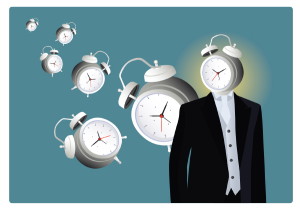by Center for Mentoring Excellence | Feb 6, 2014 | Mentoring Training
Why should you invest in mentoring training? The biggest reason is that when it comes right down to it, most people are unprepared or underprepared for their mentoring roles. Without competency and comfort in the role, it is hard to feel confident and to be good at mentoring.
There are some pretty powerful payoffs for mentoring training.
1. Mentoring training builds more confident and competent mentors and mentees.
2. Mentoring training promotes participant readiness by getting everyone on the same page.
3. Mentoring training sets a standard for mentoring practice.
4. Mentoring training clarifies assumptions about mentoring and communicates expectations.
5. Mentoring training provides guidelines for mentoring success.
6. Mentoring training provides an opportunity to develop and practice mentoring skills
7. Mentoring training skills are easily transferable to other types of workplace relationships.
by Center for Mentoring Excellence | Dec 17, 2013 | Making Mentoring Work For You, Mentoring Relationships
It’s holiday time and gift-giving is on everyone’s mind. But how about those intangible gifts that are not wrapped up in packages and tied with a bow?
Time is one of them. When you carve out the time to mentor someone it is indeed a very special gift. Your gift of time tells that person that they matter to you, and that you value them. On the other hand, when you repeatedly postpone or cancel meetings, it sends a different message– my time is too valuable for you, our time together isn’t important or you are not worth the investment of my time.
 Remember Stephen Covey’s Four Quadrant Model? Covey makes the distinction between urgent and not urgent activities and those things that are important and not important. Urgent and important items are the crises, pressing problems and deadlines that get most of our attention. We tend to put off things that are deemed important, but are not urgent – like mentoring and personal development. Because they lack urgency nothing compels us to act immediately. Like many people, you might find yourself putting mentoring on the back burner, confident that you will get to it when the crisis du jour is over. Even with the best of intentions you don’t, because sooner or later another crisis takes its place.
Remember Stephen Covey’s Four Quadrant Model? Covey makes the distinction between urgent and not urgent activities and those things that are important and not important. Urgent and important items are the crises, pressing problems and deadlines that get most of our attention. We tend to put off things that are deemed important, but are not urgent – like mentoring and personal development. Because they lack urgency nothing compels us to act immediately. Like many people, you might find yourself putting mentoring on the back burner, confident that you will get to it when the crisis du jour is over. Even with the best of intentions you don’t, because sooner or later another crisis takes its place.
If you are waiting to find the time to give to mentoring others, forget it. You will never find the time unless you make sure you make it a priority. Time has a way of slipping by and with it goes the opportunity to make a difference in someone’s life.
What You Can Do
- Put mentoring dates and time on your calendar well in advance.
- Commit making time for mentoring a priority.
- If you have to reschedule, do it ASAP.
- Select the tasks, assignments, decisions, etc. you can delegate to someone else so you can free up your calendar. (Ideally, your delegation should provide an opportunity for someone else to grow and develop.)
- Use planning and time management strategies to make good use of the time you do have.
Questions to Consider
- Where does the priority of mentoring currently fit in your world?
- Who could really benefit from quality time with you?
- How available and accessible are you to the people who need you?
- What tasks are you doing now that someone else could do?
by Center for Mentoring Excellence | Dec 10, 2013 | Uncategorized
Congratulations. Your mentoring program received high marks this year. Training sessions were packed. Website usage tripled. The degree of satisfaction with mentoring matches surpassed last year. You’ve received a ton of accolades. But are these high marks enough to declare your mentoring program a success? (more…)
by Center for Mentoring Excellence | Dec 6, 2013 | Making Mentoring Work For You
It is not too early to begin thinking about your new year’s resolutions. We’d like to suggest that while you plan on improving your health, fitness, and financials in 2014, you also think about powering up your personal mentoring practice.

If you are motivated to raise your bar on mentoring next year, here are a few ways to turn your intentions into to a reality:
#1: Identify lessons learned. Make time to sit back and reflect on your mentoring experiences this year. What did you learn from your mentoring partner(s)? How are you using what you learned?
#2: Celebrate strengths. Think about what it is you did or said that worked particularly well in your mentoring relationships. Be as specific as you can. If you’ve kept a mentoring journal, now is the time to take another look at it. Plan to maximize your assets in the New Year.
#3: Recognize missed opportunities. We all have experiences that we wish had gone better. We may not have expressed something that needed to be said, candy-coated feedback when we could have been more forthright, or not followed through on something we’d promised. What do you wish had gone better in your mentoring relationships this past year? What got in your way? Ask your mentoring partners for feedback.
#4: Identify growth opportunities. In what ways have you grown as a mentor or a mentee? What new approaches have you tried this past year? In what ways, have you challenged and stretched yourself? Are you more effective in your mentoring role now than you were a year ago? How can you accelerate your gains this coming year?
#5: Develop a game plan. Identify specific skills, approaches and competencies you need to learn and develop to take your personal mentoring practice to the next level. Then, consider how you are going to go about acquiring the skills and knowledge you need to move forward. Craft a development plan that includes milestones and time frames and opportunities to try out new skills.
Remember: No matter how many times you engage in mentoring you can always get better at your practice. There is no better time to start than right now.

by Center for Mentoring Excellence | Dec 6, 2013 | Uncategorized
We recently asked participants at a seminar to raise their hand if they were informally mentoring someone. Almost everyone in the room held their hand up. We told those folks to keep their hand raised if the answer was yes to the following question: “Would that person, if they were sitting next to you right now, say they were being mentored by you?” Almost all the hands dropped. (more…)






